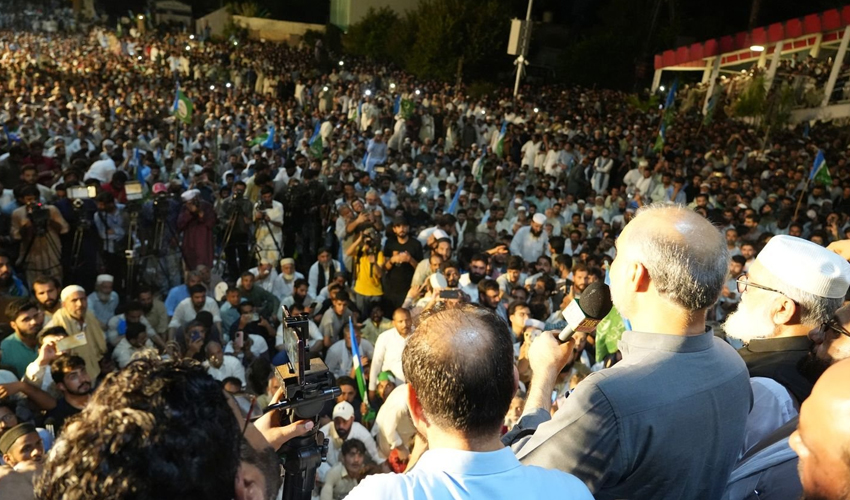ISLAMABAD: Jamaat-e-Islami Ameer Hafiz Naeemur Rehman has vowed to continue the sit-in protest until their demands are met, emphasizing that they won’t relent without securing relief for the people.
The protest, initially held at Islamabad’s D-Chowk, has moved to Rawalpindi’s Murree Road due to road closures and obstacles. Thousands of supporters are demanding the formation of an empowered committee to address their grievances.
Government Response
In response, Minister for Information, Broadcasting, Culture, and National Heritage, Attaullah Tarar, announced on Friday the government’s willingness to negotiate with Jamaat-e-Islami (JI) to end the sit-in, which has been causing inconvenience to the public.
The government has formed a three-member negotiation team, comprising Engineer Amir Maqam, Tariq Fazal Chaudhary, and Ataullah Tarar, to mediate and resolve the issues raised by the protestors.
“We are ready to talk for the peace, security, and development of the country, which is our main agenda,” the minister said at a news conference with Minister for Kashmir Affairs and Gilgit Baltistan, Amir Muqam.
The minister acknowledged JI Chief Hafiz Naeem ur Rehman as a seasoned leader whose guidance would be crucial for addressing the existing issues within the current framework.
Release of Arrested Workers
In a related development, all Jamaat-e-Islami workers previously arrested in Islamabad have been released. Thirty detained workers, who had been transferred to Kohsar Police Station and Police Station Secretariat, are now free.
Hafiz Naeem-ur-Rehman Addresses Sit-In
Hafiz Naeem-ur-Rehman, addressing the sit-in in Rawalpindi, highlighted the increasing pressure on their workers, citing ongoing raids and arrests since the previous day.
He emphasized the unbearable situation faced by salaried individuals and traders, criticizing the government’s lack of response. Rehman recounted a tragic incident in Gujranwala, where a dispute over an electricity bill led to one brother killing another.
He criticized the disparity between low house rents and high electricity bills, condemning the government’s decisions that burden the public while increasing its own expenses.
Rehman dismissed the government’s claim that negotiations with Independent Power Producers (IPPs) are impossible, arguing that vested interests within the government exploit the IPP system. He called for the closure of several IPPs.
He demanded immediate relief, including reduced electricity bills and regulation of landlords. He proposed removing taxes from electricity bills and instead taxing landlords, as well as abolishing the tax slab for salaried individuals.
Rehman argued that the main issue is not new elections but rightful governance for those winning on Form 45. He suggested that demands for new elections indicate deeper issues. Jamaat-e-Islami seeks to provide relief to the people and will not end the sit-in without achieving this goal. He urged the government to form an empowered committee to negotiate.
Rehman highlighted the severe economic impact of industry closures, noting that life has become extremely difficult, with people selling household items to pay electricity bills. He reiterated that the sit-in will not end until their demands are met, including terminating several IPPs.


